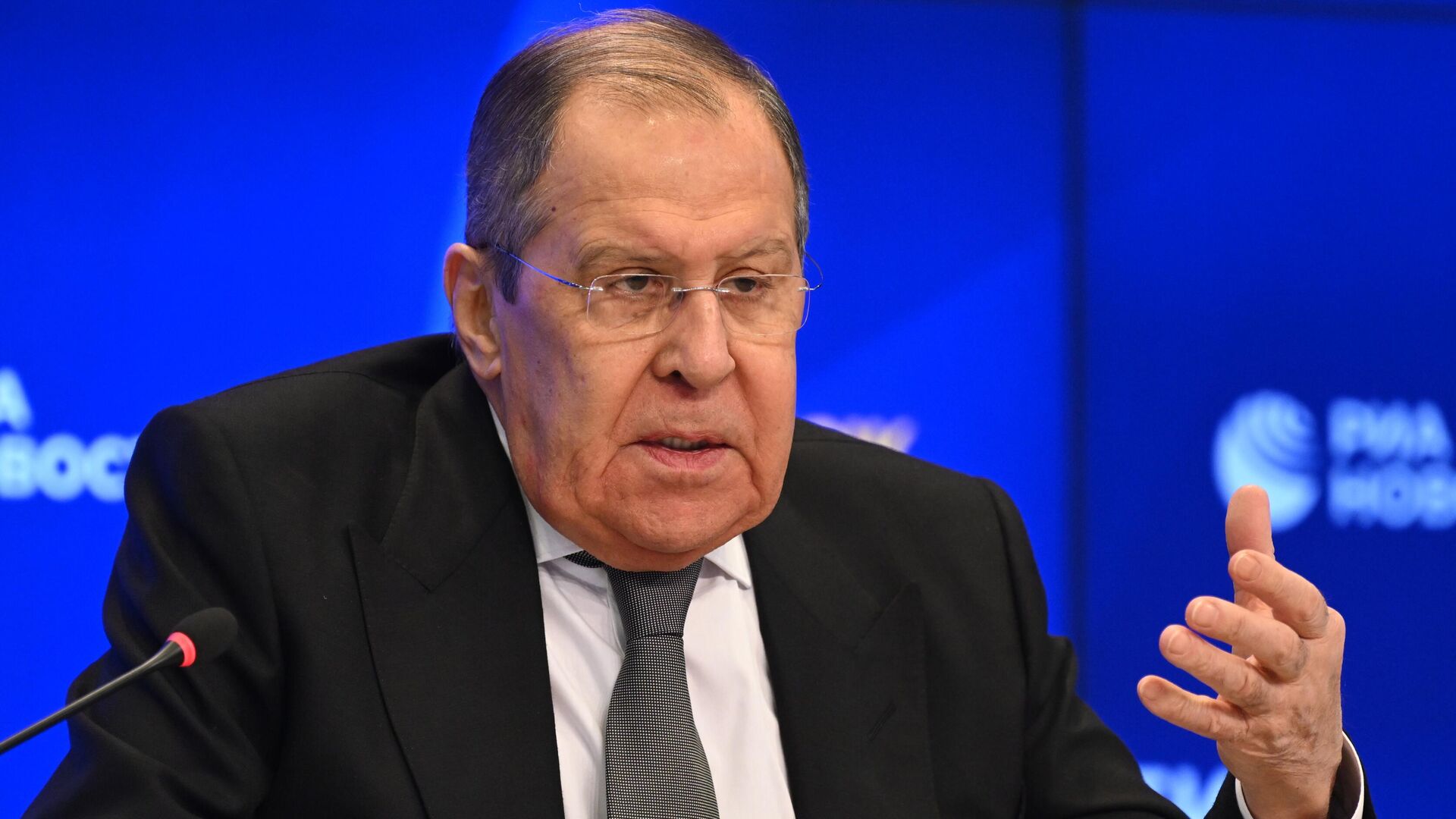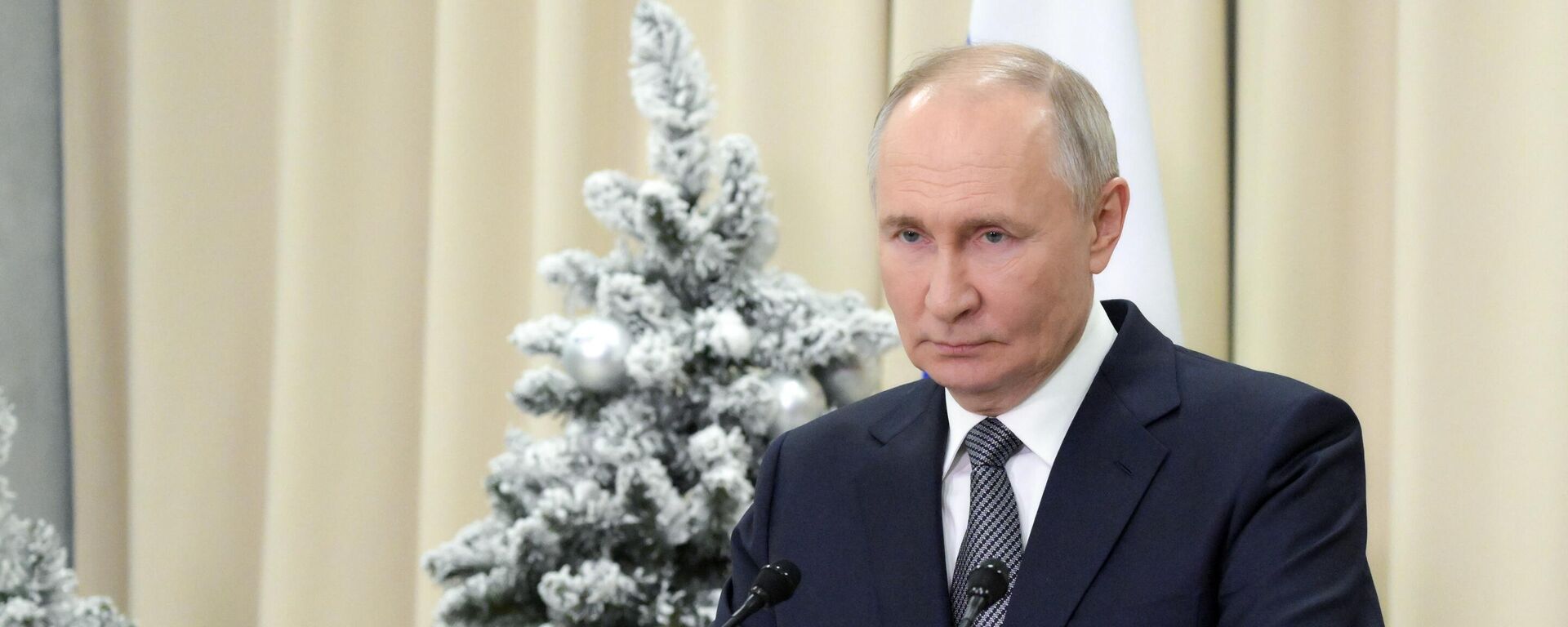https://en.sputniknews.africa/20241229/russia-to-abandon-moratorium-on-deployment-of-medium-range-nuclear-forces-foreign-minister-says-1069947610.html
Russia to Abandon Moratorium on Deployment of Medium-Range Nuclear Forces, Foreign Minister Says
Russia to Abandon Moratorium on Deployment of Medium-Range Nuclear Forces, Foreign Minister Says
Sputnik Africa
MOSCOW (Sputnik) - The recent testing of the Russian new Oreshnik intermediate-range ballistic missile in combat conditions has shown Russia's capabilities... 29.12.2024, Sputnik Africa
2024-12-29T10:03+0100
2024-12-29T10:03+0100
2025-01-15T15:31+0100
sergey lavrov
vladimir putin
russia
united states (us)
china
north america
asia
oreshnik ballistic missile
missiles
north atlantic treaty organization (nato)
https://cdn1.img.sputniknews.africa/img/07e8/02/10/1065104227_0:0:3344:1881_1920x0_80_0_0_922f6d7586c4989ed36222c351d745f6.jpg
Russia will have to abandon its unilateral moratorium on the deployment of intermediate-range and shorter-range ground-based missiles, which is practically nonviable today, although it remains in effect, Russian Foreign Minister Sergey Lavrov told Sputnik.The Intermediate-Range Nuclear Forces Treaty (INF) is an agreement between the US and Russia, banning the two nations from deploying intermediate-range and shorter-range missiles.At the same time, today Russia's moratorium on the deployment of ground-based intermediate-range and shorter-range missiles "remains in force," the minister stressed. The United States and NATO will receive a decisive rebuff in the form of military-technical countermeasures from Moscow if they create new missile threats for Russia, the top diplomat noted.Russia can only be interested in "comprehensive work to reduce the conflict potential with an emphasis on eliminating the root causes of fundamental security contradictions," the minister added.
https://en.sputniknews.africa/20241227/russia-can-use-oreshnik-missile-systems-again-if-necessary-but-no-rush-putin-states-1069910316.html
russia
united states (us)
china
north america
asia
Sputnik Africa
feedback@sputniknews.com
+74956456601
MIA „Rossiya Segodnya“
2024
Sputnik Africa
feedback@sputniknews.com
+74956456601
MIA „Rossiya Segodnya“
News
en_EN
Sputnik Africa
feedback@sputniknews.com
+74956456601
MIA „Rossiya Segodnya“
Sputnik Africa
feedback@sputniknews.com
+74956456601
MIA „Rossiya Segodnya“
sergey lavrov, vladimir putin, russia, united states (us), china, north america, asia, oreshnik ballistic missile, missiles, north atlantic treaty organization (nato)
sergey lavrov, vladimir putin, russia, united states (us), china, north america, asia, oreshnik ballistic missile, missiles, north atlantic treaty organization (nato)
Russia to Abandon Moratorium on Deployment of Medium-Range Nuclear Forces, Foreign Minister Says
10:03 29.12.2024 (Updated: 15:31 15.01.2025) MOSCOW (Sputnik) - The recent testing of the Russian new Oreshnik intermediate-range ballistic missile in combat conditions has shown Russia's capabilities, the Russian foreign minister noted.
Russia will have to abandon its unilateral moratorium on the
deployment of intermediate-range and shorter-range ground-based missiles, which is practically nonviable today, although it remains in effect, Russian Foreign Minister Sergey Lavrov told
Sputnik.
"Today it is obvious that, for example, our moratorium on the deployment of the INF is already practically nonviable, and it will have to be abandoned," Lavrov said.
The Intermediate-Range Nuclear Forces Treaty (INF) is an agreement between the US and Russia, banning the two nations from deploying intermediate-range and shorter-range missiles.
At the same time, today Russia's moratorium on the deployment of ground-based intermediate-range and shorter-range missiles "remains in force," the minister stressed.
"The United States arrogantly ignored the warnings from Russia and China and, in practice, proceeded to deploy weapons of this class in various regions of the world. As the Russian President Vladimir Putin has unequivocally stated, we will respond to this, and react proportionately," Lavrov explained.
The United States and NATO will receive a decisive rebuff in the form of military-technical countermeasures from Moscow if they create new missile threats for Russia, the top diplomat noted.
"We are ready for any scenario. If new missile threats are created, the opponents will receive a decisive rebuff in the form of military-technical countermeasures. In turn, hypothetical steps to create acceptable conditions for an equal dialogue will be taken into account," he pointed out.
Russia can only be interested in "comprehensive work to reduce the conflict potential with an emphasis on eliminating the root causes of fundamental security contradictions," the minister added.
"These include, first of all, the long-term expansion of NATO to the East. This is what provoked the Ukrainian crisis in many ways and continues to pose a threat to Russia's security. Hypothetically, arms control issues could also be discussed, but only as one of the elements of a broader agenda," Lavrov said.



